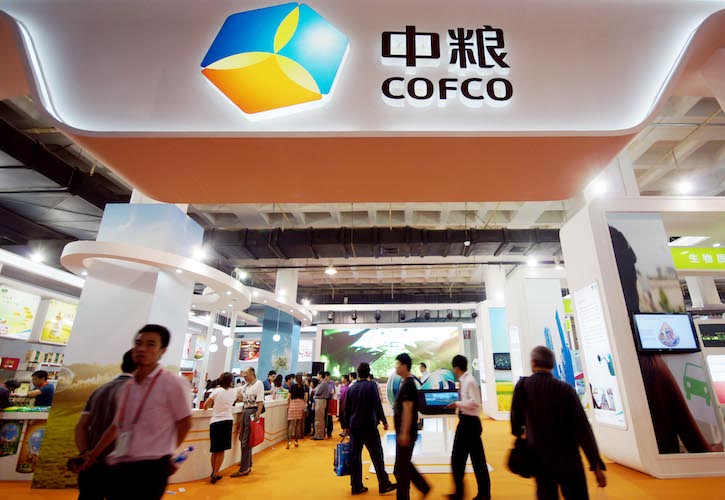
By Dorinda Elliott
Five years ago, when Yu Xubo, president of COFCO, one of China’s largest state-owned enterprises and its largest agricultural products producer and trader, participated in a seminar at Harvard University, he felt that the conversation about sustainability and consumer preferences had little relevance to China. In the West, the professors explained, consumers and NGOs were pushing to reshape multinationals’ supply chains. Yu was not quite convinced at the time.
“The dynamic in China was so different,” Yu said recently on a high level panel in the World Economic Forum in Davos. “But today, that’s exactly what is happening in China. Consumers care about companies’ carbon footprints.” Sustainability, he added, has started to become a “competitive advantage” in China. “Consumers want to buy from companies that are responsible.”
Yu’s comments were remarkable for a number of reasons. Here was the head of a huge Chinese SOE speaking in perfect English, without notes, onstage in Davos, Switzerland, at the annual conclave of the world’s chatterati—global thinkers, business leaders, and government heavyweights. And he was speaking on a panel titled “A New Chapter for Climate Action”—alongside former Vice President and environmental activist Al Gore, the head of HSBC, the prime ministers of Norway and Bangladesh, and pundit Tom Friedman—with passion about the importance of the private sector “taking responsibility” for greening global supply chains. “If you want to sustain people, you must sustain the world,” he said. “The Paris Climate Agreement has prioritized a shift to a low-carbon model. It’s time for the private sector to take responsibility.”
According to Yu, COFCO is already doing just that. The company “uses its global supply chain to scale mitigation efforts,” he said. The challenge for the food industry, he added, is to produce more food while reducing greenhouse gas emissions. A “deep transformation” is needed, he said. “The cost of inaction is greater than intervention. Addressing emissions from land use change or deforestation driven by agricultural expansion is essential.”
Coming from such a powerful organization as COFCO, Yu’s statement is historic. The Paulson Institute has been working with COFCO and other Chinese soy importers and Brazilian soy trade players to promote responsible soy production in Brazil. The Brazilian government has been working on measures to stop its farmers from illegally cutting down forests or converting other natural ecosystems to expand their soy production. To support and reinforce those efforts, the Paulson Institute and its partners built the Sustainable Soy Trade Platform to engage and encourage key Chinese and multinational soy traders to send demand signals for sustainably produced soy in Brazil. Yu’s remark is encouraging, indeed, further enhancing the demand signal.
Yu also called on global commodities traders to “turn our pledge into concrete measures.” COFCO, he said, is already recording its carbon footprint, with third party verification. He added that the company uses satellite imaging to make sure there is no deforestation in the production of bioethanol in Brazil, for example. “It’s important to turn our commitments into action.”
COFCO has been speaking with its major international business partners about greening supply chains, according to Yu. He sees the global demand for sustainably produced agriculture products as an opportunity: In his view, smart companies should pursue a “green growth concept.”
We agree. And we find it inspiring to see that COFCO’s global business expansion has a growing sustainability vision to match. Now that COFCO has made its ambition in sustainability known, we look forward to and applaud COFCO’s efforts to join its Western peers to translate their commitments into actions that will have real impact on the ground.


